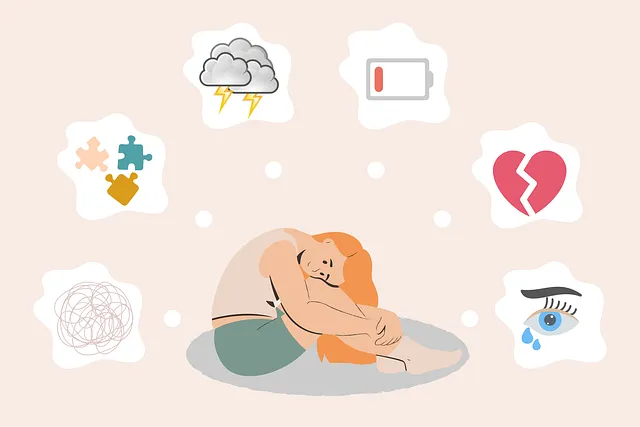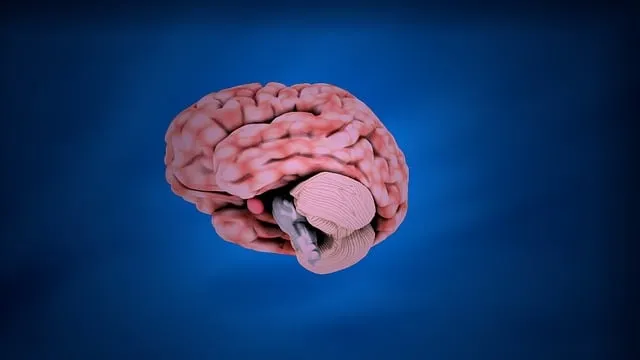Kaiser Permanente mental health facilities in Wheat Ridge prioritize patient safety through comprehensive risk assessment and harm minimization. By evaluating risks, implementing targeted strategies like self-care promotion, and advocating for systemic changes, they ensure effective mental health services that address current needs while proactively mitigating future harms within the community. This approach, exemplified by Kaiser Permanente Mental Health Wheat Ridge, involves evidence-based risk management planning, fostering a supportive environment, continuous evaluation, and adaptation to community needs, revolutionizing mental healthcare through proactive measures and Inner Strength Development.
Risk assessment and harm minimization planning are vital components of any organization’s commitment to safety and well-being, especially within healthcare settings. This article explores these critical processes, drawing on a case study of Kaiser Permanente Mental Health Wheat Ridge, where actionable planning has made significant impacts. We’ll delve into understanding risk assessment as a foundational step, examine strategies for effective implementation, and discuss continuous improvement tools, all while highlighting best practices from the Kaiser Permanente model.
- Understanding Risk Assessment: A Foundation for Harm Minimization
- Kaiser Permanente Mental Health Wheat Ridge: A Case Study in Actionable Planning
- Strategies and Tools for Effective Implementation and Continuous Improvement
Understanding Risk Assessment: A Foundation for Harm Minimization

Risk assessment is a fundamental process in harm minimization planning, especially within healthcare settings like Kaiser Permanente mental health facilities in Wheat Ridge. It involves meticulously evaluating potential risks and their likelihood to cause harm, allowing for proactive measures to safeguard patients. This methodical approach ensures that mental health services not only address immediate needs but also proactively mitigate future risks.
By understanding the unique challenges faced by individuals seeking mental wellness, Kaiser Permanente can tailor risk assessment strategies. For instance, promoting Self-Care Routine Development for Better Mental Health is a key aspect of harm minimization, empowering patients to manage their well-being effectively. Through comprehensive Mental Health Policy Analysis and Advocacy, the organization can identify systemic risks and advocate for changes that support mental wellness, ultimately reducing potential harms within the community.
Kaiser Permanente Mental Health Wheat Ridge: A Case Study in Actionable Planning

Kaiser Permanente Mental Health Wheat Ridge serves as an excellent case study showcasing how actionable planning can revolutionize mental healthcare. This facility has implemented comprehensive Risk Management Planning for Mental Health Professionals, prioritizing harm minimization and patient safety. By integrating evidence-based practices, they’ve fostered a supportive environment that facilitates emotional healing processes.
The team at Kaiser Permanente Wheat Ridge understands the delicate nature of mental health care. They’ve tailored their strategies to address unique challenges, such as managing high-risk individuals while boosting client confidence. Through proactive measures and continuous evaluation, they ensure a secure space for patients to navigate their emotional journeys. This approach not only minimizes potential harms but also empowers both staff and clients, ultimately enhancing the overall effectiveness of mental health services.
Strategies and Tools for Effective Implementation and Continuous Improvement

Implementing effective risk assessment and harm minimization strategies requires a multifaceted approach tailored to organizations like Kaiser Permanente mental health Wheat Ridge. One key tool is the utilization of comprehensive risk assessment tools that consider both individual patient factors and broader systemic influences. These tools enable healthcare providers to identify potential risks and develop proactive interventions, fostering a culture of Inner Strength Development within the organization.
Additionally, continuous improvement plays a crucial role. Kaiser Permanente mental health Wheat Ridge can enhance its practices by regularly reviewing data on patient outcomes, engaging in Healthcare Provider Cultural Competency Training, and incorporating feedback from both patients and staff. This iterative process ensures that Stress Reduction Methods are not only effective but also adapted to meet the evolving needs of the community they serve.
Risk assessment and harm minimization planning, as exemplified by Kaiser Permanente Mental Health Wheat Ridge’s approach, are essential strategies for organizations aiming to create safe and supportive environments. By understanding risk assessment as a foundational step and utilizing actionable planning tools, institutions can effectively manage potential harms. This case study highlights the importance of continuous improvement in implementing these strategies, ensuring that risks are consistently identified and mitigated, ultimately fostering better outcomes for all involved.






